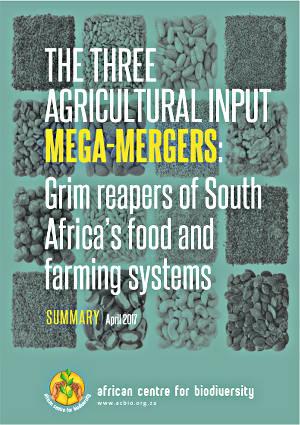Latest Resources

14 December 2020
SHOCK AFTER SHOCK IN AFRICA: A TALE OF ECOLOGICAL IMBALANCE, THE FALL ARMYWORM INFESTATION AND FA...
We are pleased to present the third discussion paper in our “Multiple Shocks in Africa Series”. Africa is being hit by multiple shocks: COVID-19, locust plagues sweeping across many African countries, droughts and cyclones, fall armyworms (FAW) marching their way through millions of hectares of maize fields, and the already felt impact of the climate […]

27 November 2020
Introducing ACB’s multiple shocks in Africa series: ecological crisis, capitalist nature & d...
Veuillez cliquer ici pour le français Por favor clique aqui para Português Por favor, haga clic aquí para el español Tafadhali bonyeza hapa kwa Kiswahili The COVID-19 pandemic and subsequent crises, as a result of lockdowns, have exposed the fractures of human societies’ relationship with nature. In a world dominated by capitalist globalisation, these crises […]

29 May 2020
Profiteering from health and ecological crisis in Africa: The Target Malaria project and new risk...
Cliquez ici pour le français The ACB shares this research paper with you, of the wave of ‘Trojan horse’ second-generation genetic engineering strategies targeted at, inter alia, malaria in Africa, at a time when the COVID-19 crisis is fracturing the myth that global health expertise is the domain of North America and Europe. Global health […]

16 August 2019
Africa must ban glyphosate now!
Thank you for supporting our continental campaign to ban glyphosate The deadline for signing on to the petition was Friday, 30 August, 2019. In the next phase of the campaign, many organisations around the continent are sending letters to their governments calling for a ban. In this paper we explain why. Globally, glyphosate and glyphosate-based […]

13 May 2019
Gene drive organisms: What Africa should know about actors, motives and threats to biodiversity a...
The African Centre for Biodiversity (ACB) has produced a briefing paper in regard to a new and controversial genetic engineering (GE) technology to produce gene drive organisms (GDOs). These GDOs have been specifically designed to spread an engineered, ‘modified’ genetic trait such as sterility, with the potential to eradicate entire wildlife populations and even species. […]

20 June 2018
What Does Synthetic Biology Mean for Africa? – An Africa Regional Briefing publication prod...
Huge technical advances in molecular biology and big data biology are leading us towards a ‘forth industrial revolution’ with the ongoing development of novel genetic engineering techniques being reviewed by the UN Conventions for Biological Diversity, under the term ‘synthetic biology’. Such techniques are widening the scope and extent to which organisms can be modified, […]

1 September 2017
WEMA Project shrouded in secrecy: open letter to African governments to be accountable to farmers...
The Water Efficient Maize for Africa (WEMA) project promises to develop drought tolerance in maize for the benefit of small holder farmers, but is really a project designed to facilitate the spread of hybrid and genetically modified (GM) maize varieties on the continent. WEMA involves five African countries: Kenya, Mozambique, South Africa, Tanzania and Uganda. […]

10 August 2017
The Water Efficient Maize for Africa Project: Profiteering not Philanthropy
This scoping study aims to appraise, to the best of our knowledge, the current status of the roll-out of a public- private partnership which forms the the Water Efficient Maize for Africa (WEMA) project in five African countries: Kenya, Mozambique, South Africa, Tanzania and Uganda. The partnership is between the African Agricultural Technology Foundation (AATF), […]

11 April 2017
Mega-mergers: 3 giant corporations controlling South Africa’s food and farming systems
This briefing deals with the three mega mergers taking place in the agriculture sector as Dow Chemical and DuPont are set to merge, China National Chemical Corporation (ChemChina) is to acquire Syngenta and Bayer is to acquire Monsanto. The proposed Bayer-Monsanto merger will give control of almost 30% of the world’s commercial seed market and […]

28 November 2016
Biosafety aspects of genome-editing techniques
Biosafety TWN Briefing – Biosafety aspects of genome-editing techniques. You can download the paper here.
